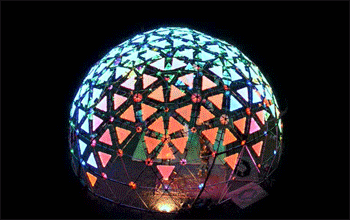

Two events to celebrate achievements in science and engineering of light and light-based technologies, and raise awareness of contributions to humanity 
Nearly two dozen interactive exhibits will allow hands-on learning about light.
Credit and Larger Version August 26, 2015 To promote the progress and promise of light research and education, leading U.S. science organizations will host two events on Saturday, Sept. 12, 2015, in Washington, D.C. The events are organized by the National Science Foundation (NSF) in conjunction with the American Institute of Physics, the American Physical Society, the IEEE Photonics Society, the National Academy of Sciences, the Optical Society and the International Society for Optics and Photonics (SPIE). The programs will mark the International Year of Light, a yearlong celebration of light science and its applications, as proclaimed by the United Nations. These events will feature the latest in light-based technologies as well as leading scientists and educators to promote improved public understanding of the central role of light in the modern world. Wonders of Light: Family Science Fun What
An educational event for school-age children with activities demonstrating the science of light When
10 a.m. - 3 p.m. E.T. on Sept. 12 Where
The Smithsonian National Museum of the American Indian Who
Public and media are welcome; no RSVP required
The first 1,000 visitors will receive an International Year of Light tote bag. Hands-on activities to include: - A LED-orb that changes color with music
- Build-your-own kaleidoscope
- An interactive video game
- A green screen to be a reporter for a day
Light for a Better World: A Celebration of U.S. Innovation What
A public symposium and invitation-only reception When
6 - 9 p.m. E.T. on Sept. 12 Where
National Academy of Sciences Who
Media and invited guests
Interested members of the media, please email pwimmer@osa.org. This symposium will feature: - Eric Betzig, Howard Hughes Medical Institute, 2014 Nobel Prize Winner
- France Córdova, National Science Foundation Director
- Gerald Duffy, GE Lighting Manager
- Michael Liehr, AIM Photonics CEO
- Shuji Nakamura, University of California Santa Barbara, 2014 Nobel Prize Winner
About the International Year of Light
The International Year of Light and Light-Based Technologies (IYL 2015) is a global initiative adopted by the United Nations (A/RES/68/221) to raise awareness of how optical technologies promote sustainable development and provide solutions to worldwide challenges in energy, education, agriculture, communications and health. With UNESCO as lead agency, IYL 2015 programs will promote improved public and political understanding of the central role of light in the modern world while also celebrating noteworthy anniversaries in 2015--from the first studies of optics 1,000 years ago to discoveries in optical communications that power the Internet today. For more information on the International Year of Light, please visitlight2015.org. For more information about NSF-funded light research and education, visitnsf.gov/light. -NSF- 
Media Contacts
Sarah Bates, NSF, (703) 292-7738, sabates@nsf.gov Related Websites
NSF.gov/light: www.nsf.gov/light 
The National Science Foundation (NSF) is an independent federal agency that supports fundamental research and education across all fields of science and engineering. In fiscal year (FY) 2015, its budget is $7.3 billion. NSF funds reach all 50 states through grants to nearly 2,000 colleges, universities and other institutions. Each year, NSF receives about 48,000 competitive proposals for funding, and makes about 11,000 new funding awards. NSF also awards about $626 million in professional and service contracts yearly. http://www.nsf.gov/news/news_summ.jsp?cntn_id=136072&WT.mc_id=USNSF_51&WT.mc_ev=click |
Nenhum comentário:
Postar um comentário
Observação: somente um membro deste blog pode postar um comentário.